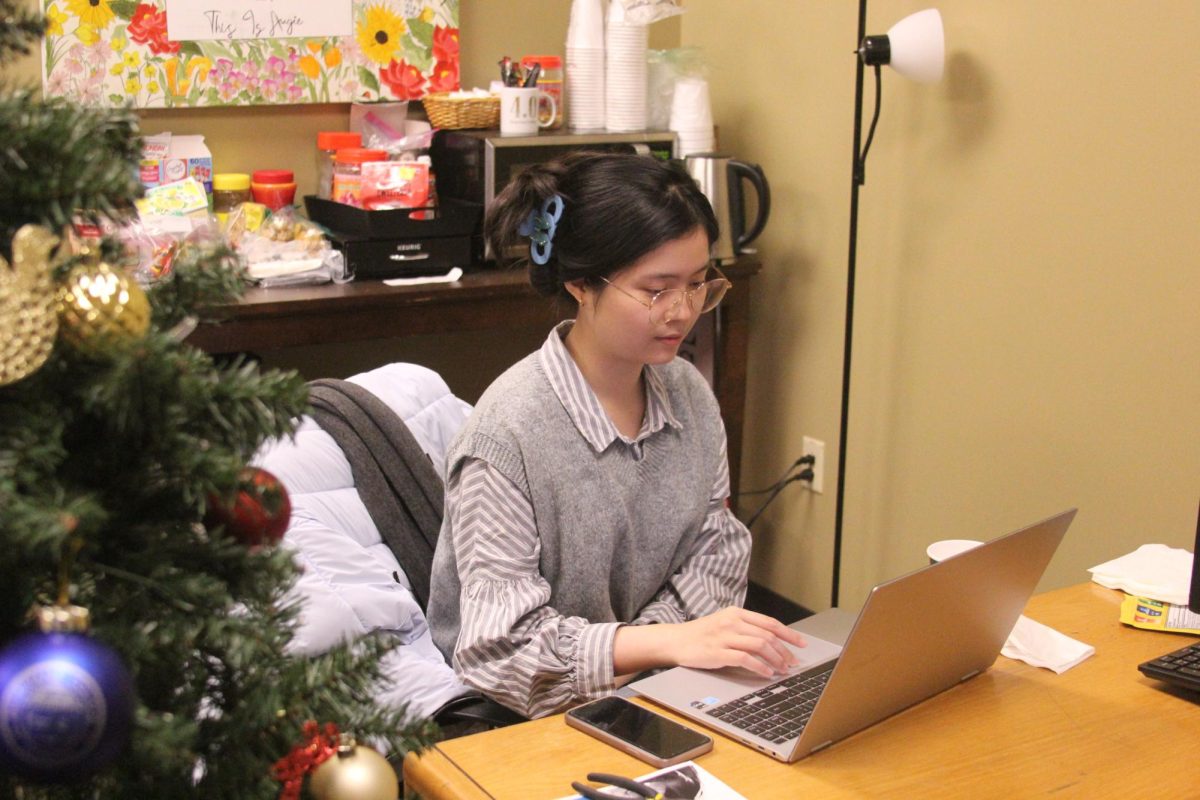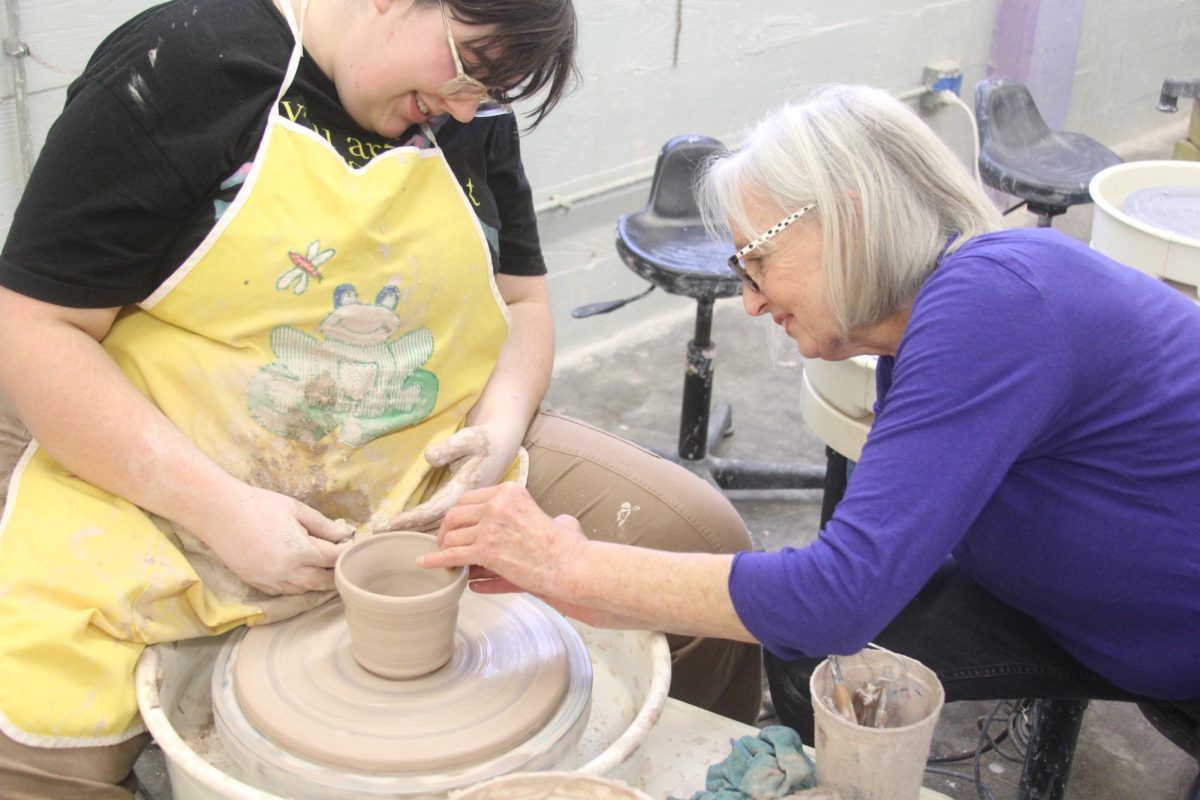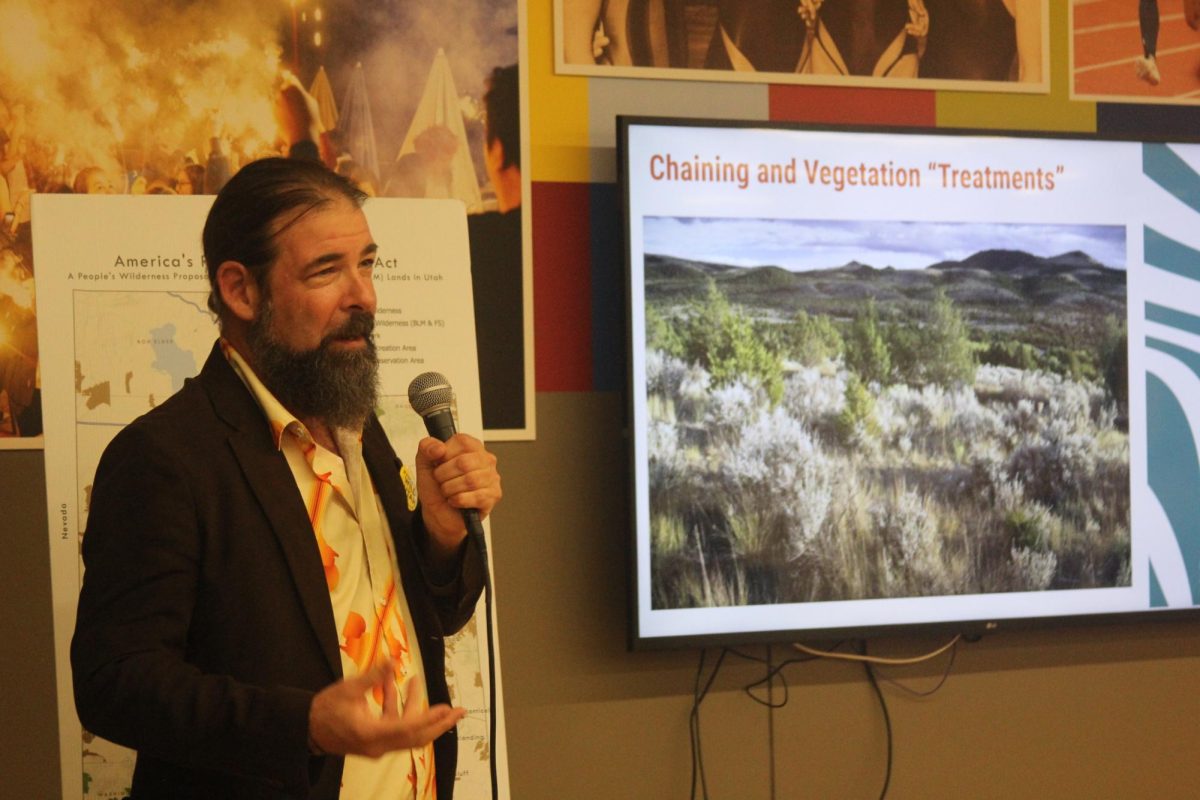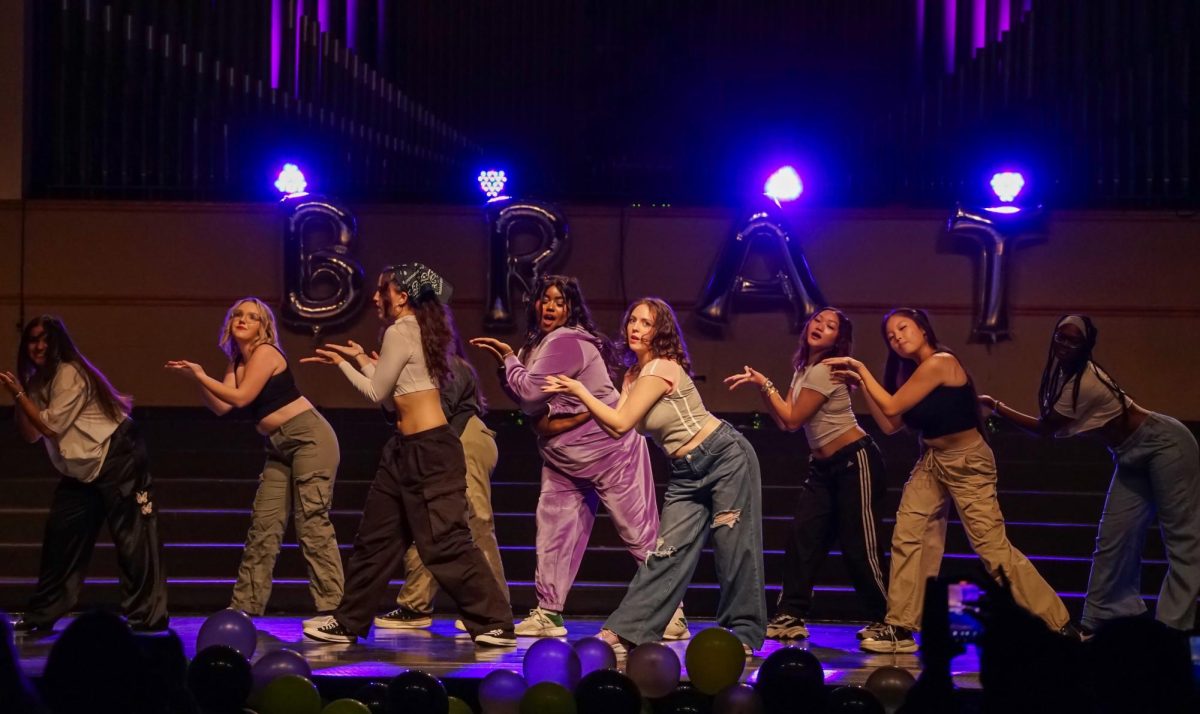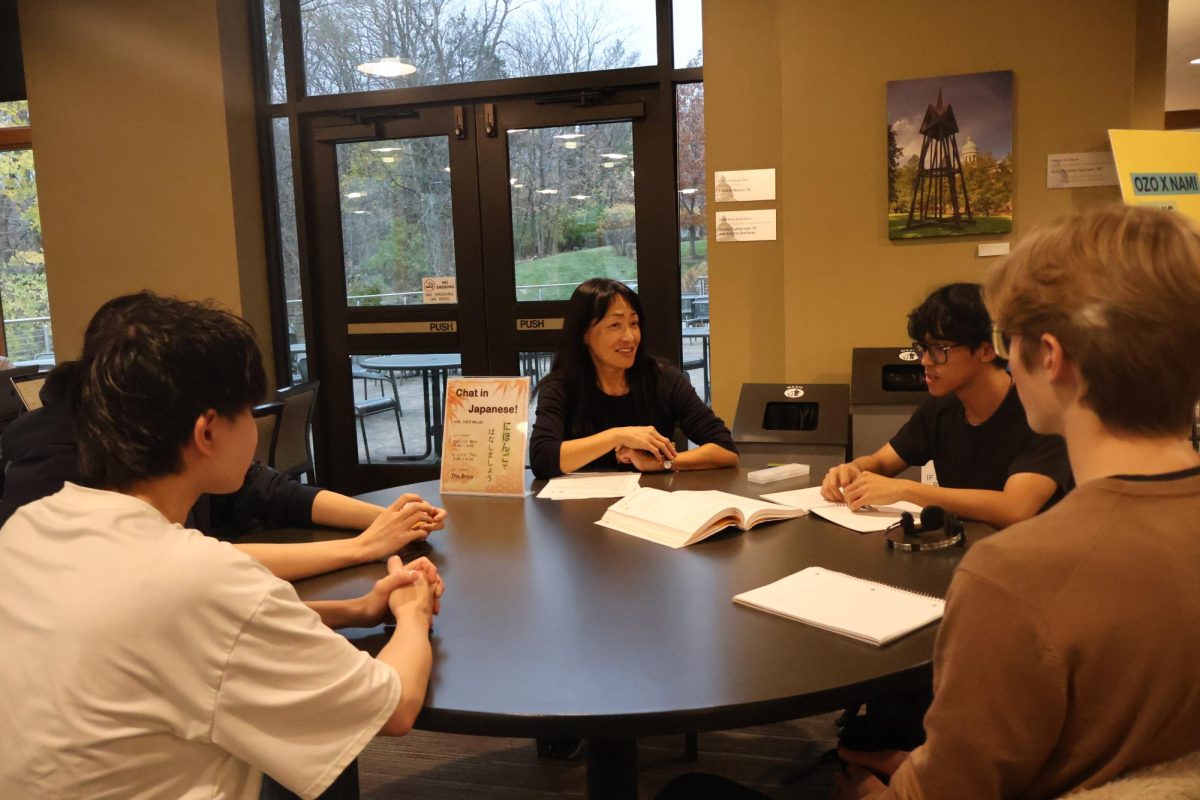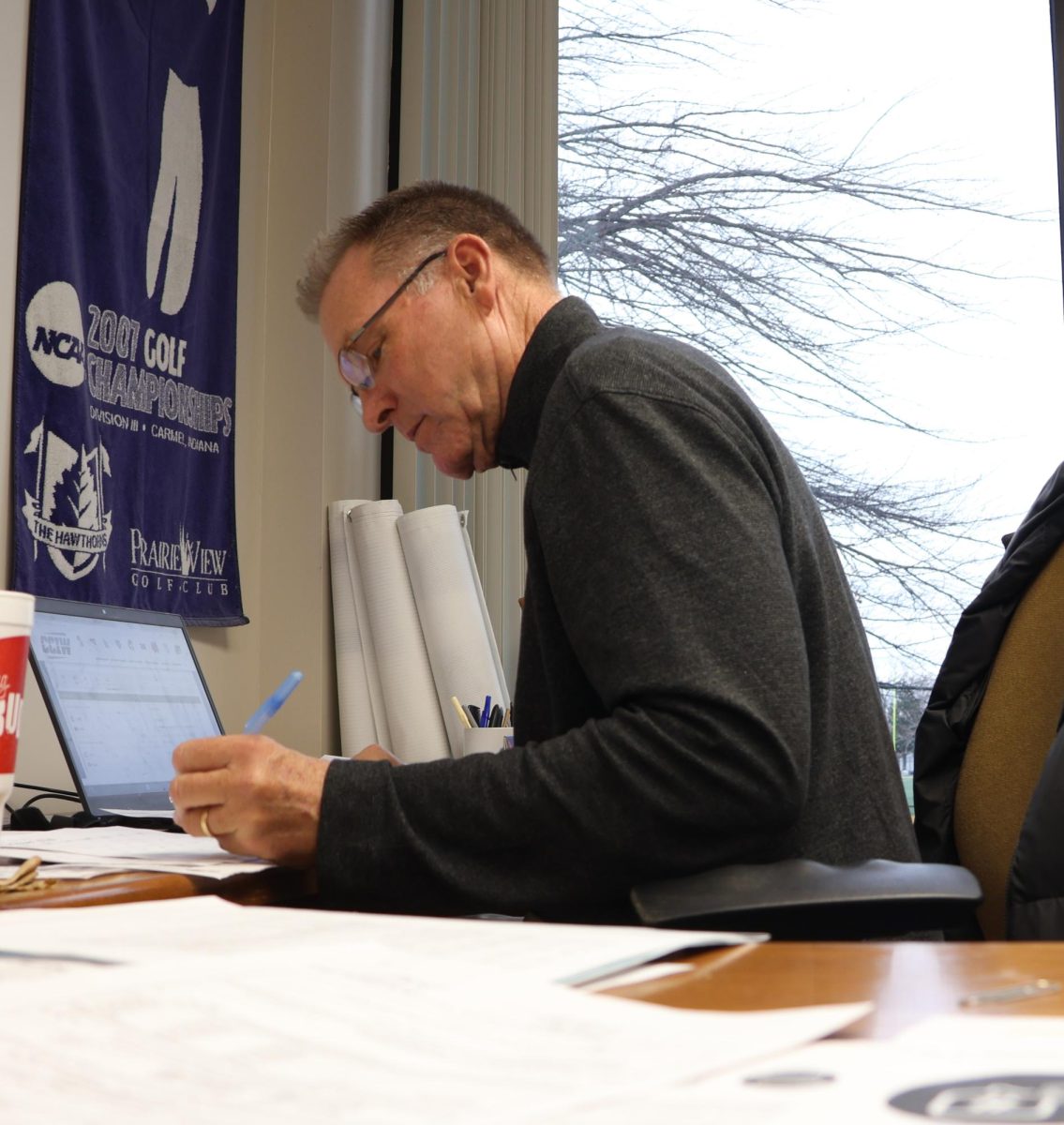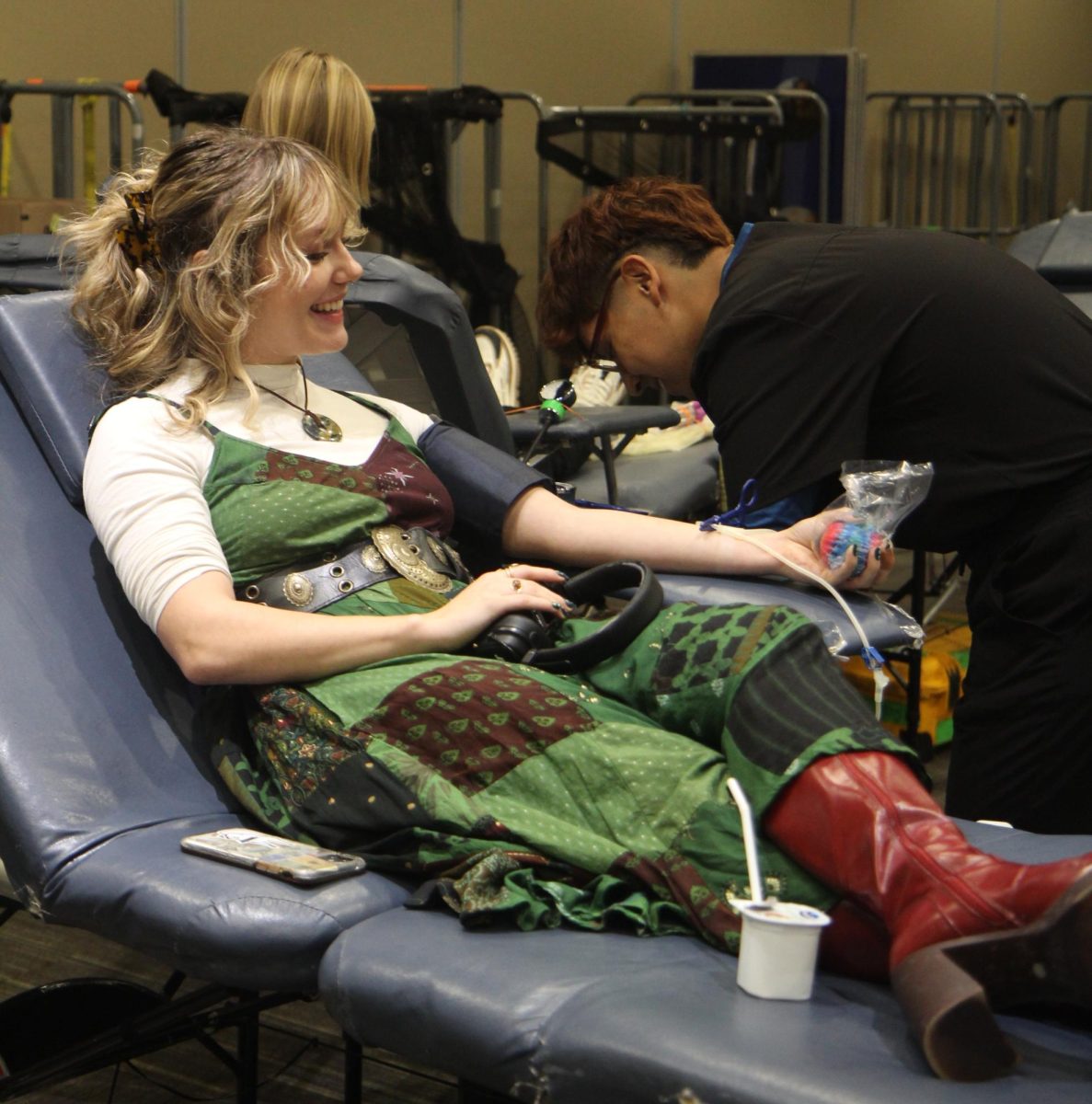A presentation and discussion on peaceful protest and activism was held at 7 p.m. on Wednesday, Jan. 24, in Olin Auditorium by the OMSL in collaboration with students from POLS 375 and WGST 380. Seniors Marlen Gomez, Stacie Gill and Mykea Johnson, junior Kewan Dixon, and sophomore Hannah Kiel led discussions and made presentations, along with Officer Tom Phyllis from Public Safety.
The presentations were followed by a discussion with Public Safety Officer Tom Phyllis, who made clear his stance on the concept of non-violent protest. “As a police officer, I took an oath to uphold the Constitution and to uphold free speech, and that’s what I’ve done.” While Phyllis stated that he may sometimes not agree with the views of student protesters, his first responsibility is to ensure their safety. He also shared some guidelines for peaceful activism with the audience.
“Your first step is to inform the administration. This is not so we can stop you. This is so we know when this is happening, where this is happening, so we can keep that activism safe and make sure there are no incidents.” Phyllis also asked students to cooperate with security personnel who were present at their protests. “The moment you impair the daily operations of the college and prevent others from getting an education, then that’s not a peaceful protest and we can help you avoid that.” He also advised students to be aware of who was participating in their events in order to identify outsiders, who could be either radical sympathizers or dissenters. “Not everyone in the college gets along, not everyone in the world gets along. Expect these people to show up, and be aware that you can come to us if someone’s behaviour threatens to escalate tensions at your event.”
Students in the audience also asked Phyllis for his opinion on the recent aggressive chalkings on Augustana’s campus and whether they could be considered an example of hate speech. Phyllis acknowledged that this was a difficult question to answer. “Hate speech isn’t pleasant, but it can be a good way for us to talk about the rhetoric and taglines we are using in our politics, and how offensive that can be for some people.”
Junior Noah Christina-Reed was in the audience and commented on Phyllis’ response in an interviews following the discussion. “While he had some valid points, we still shouldn’t be on the back end of things, taking care of events like this after they happen. That’s where activism comes in ” Reed said. Reed was the organizer of the aforementioned protest at Homecoming, 2017 and continues to kneel at college basketball games. “I don’t put my hand on my heart for the anthem because right now, I can’t relate to that.”
Senior Stacie Gill followed Phyllis with a presentation on digital activism. She took for her topic civil rights activist DeRay McKesson, who uses social media platforms to carry out activism. Gill told the audience, “It’s important that you use platforms like FaceBook and Twitter to speak up and voice your reactions” and invited the audience to share instances of digital activism which stood out to them. “Don’t assume that activism looks one way. Voicing your opinion is the first step to being an activist” Gill said.
Hannah Kiel read Maya Angelou’s poem “The Caged Bird” and presented artwork which she had created as an accompaniment to the piece. She returned repeatedly to Angelou’s line “The caged bird sings of freedom” to connect with the discussion’s theme of protest and voicing opinions.
Senior Mykea Johnson followed Kiel with a poster presentation on the “Madres de la Plaza de Mayo” – the “mothers of the Plaza de Mayo”, whose children were abducted and killed during Argentina’s 1977-1983 military dictatorship, and who began marching 40 years ago in protest of government attempts to cover up the disappearances. The marches were remarkable because they took place in front of the presidential palace in Buenos Aires at a time when meeting in public was forbidden, particularly for women. Johnson drew attention to the fact that the women, some of whom are now in their 80s’, have now completed over 2000 marches, set up their own newspaper, and have a sister group, the Grandmothers of the Plaza de Mayo. “Their actions told the government that you can’t wash away history, not without repercussions,” Johnson said.
Junior Kewan Dixon also made a presentation on “Brown vs. Board of Education”, the five cases brought before the US Supreme Court 1952-1955 which determined the desegregation of school systems. As Dixon pointed out, one of these cases was caused in part by 16 year old civil rights activist Barbara Rose Johns, who organized a student protest against segregation at her high school on April 23rd 1951. He also spoke on activism efforts by the Augustana community through the years, in particular by the African American Society, now known as the Black Students Union, which was founded in 1968. According to Dixon, some of its past achievements include the Black Power Symposium of February 1969, the Friendship Fair Demonstration in April 1969, and sit-ins in President Sorenson’s office in February 1972.
Following the presentations, the audience was invited to direct their questions to the audience and voice their opinions. Stacie Gill spoke on her own experiences of protest, “There’s a lot of strategic planning that goes into it, a lot of 2am meetings. Safety concerns is the first thing that comes up. And at the end of it we’re all really drained and tired, and we’re the ones who are doing it, but there’s a kind of reaffirmation of what we’re doing this that comes with it.”
Numerous students also expressed the view that more Caucasian students needed to come to these events. Referring to a conversation with the OMSL, Noah Christina-Reed said, “This was supposed to be a campus-wide event, but most students see the email from Multicultural Student Life and think, ‘that doesn’t apply to me.”
Hannah Kiel suggested during discussions that Caucasian students might feel intimidated by such events and be unwilling to place an emotional burden on African American students who had to explain their situation repeatedly. Phyllis added “They feel like they’re invading your space.” While Reed says that she understands this feeling of intimidation, she also believes that “If you stand up for these issues as a person of Caucasian origin, then there’s no stigma, no ridicule that attaches itself to you. You don’t have to be the main voice in a situation, but you can correct behaviour that you feel is incorrect, and that’s a small change, but that can still help bring justice to people.”
Nevertheless, activism remains a relevant topic for many students on campus. Sophomores Shayna Smith and Alexa Pederson attended the QC Women’s March held at the Schwiebert Riverfront Park last Sunday. Both found the experience highly empowering. “I was actually really surprised by how much positive feedback I received from onlookers,” said Pederson. “My sign had an MLK quote in Portuguese, and so many onlookers asked what it said. This created a space to talk about the Women’s March in general, and led to a lot of cool conversations that I wasn’t expecting to have.” She also commented on how effective the protest was at bridging gaps between people whose lives are very different. “I felt so connected with everyone around me, even though I didn’t personally know anyone there,” Pederson said. “It was like for those few hours, through the moving words of the speakers, we were all apart of something bigger than ourselves.”
Smith commented on the effectiveness of nonviolent marches with mass participation as well. “If you have a massive crowd of people in front of you, calling for the end of injustices, and having the strength and discipline to keep their cause centered in nonviolent action, it is very impactful. That physical presence cannot be ignored.” Smith also said she would like to see more activism on Augustana’s campus. “If we can encourage younger generations to be vocal, we can really catalyze change. For instance, if the burning of the Clothesline Project made you upset, having a gathering in show of solidarity for everyone that it harms is nonviolent activism in action!”
Smith was also present at Thursday’s student demonstration against sexual assault outside the Gavle Rooms and said it was encouraging to see how many people came together to support survivors. “People are growing tired of the issue being overlooked and ignored. We want colleges to hold the perpetrators accountable, for real. We want more than just talk, and attempting to conceal the issue.” Pederson agreed with this viewpoint, saying “Nonviolent forms of protest create conversations, and if enough people start talking, then real change can occur.”
Editor Note: An earlier version of the story included our Editor-in-Chief Marlen Gomez, who was involved in the event, that inclusion has since been removed from the article.
Categories:
Conversations about peaceful protest, and what that means at Augustana
January 31, 2018
0
More to Discover

